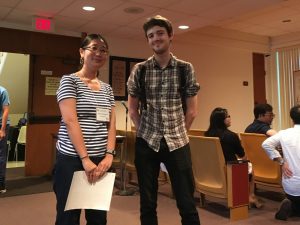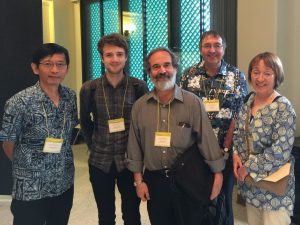CUSP 10 @ UC IRVINE
On the weekend of 20-21 October, the 10th annual California Universities Semantics and Pragmatics (CUSP) conference was held at UC Irvine. In tribute to the pan-Californian spirit of CUSP, five graduate students from three California universities carpooled from the bay to SoCal — Deniz Rudin of UCSC, Maura O’Leary of UCLA (a former UCSC undergrad and current visitor to the department), and Lelia Glass, Ciyang Qing and Brandon Waldon of Stanford. Rudin spoke on rising imperatives, O’Leary on tense in cleft constructions, Glass on the correlation between causativity and distributivity, Qing on Mandarin dou, and Waldon on the strength and weakness of might and must. Also in attendance was Santa Crucian Hitomi Hirayama, who presented a QUD-based analysis of Japanese contrastive wa, and replaced Glass on the return trip to the North.
The conference was rich with presentations on other topics from students at other California universities, and on display throughout was an atmosphere of discussion that maintained a pleasant balance between trenchant, searching engagement and warm, welcoming collegiality — as always, CUSP serves as an annual reminder that we’re all very lucky to be studying meaning in the Golden State.

